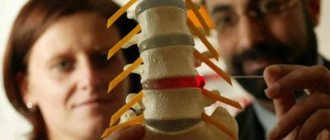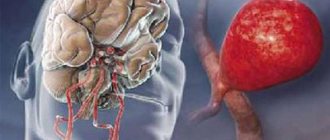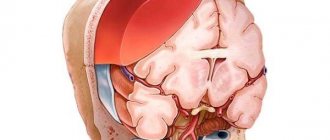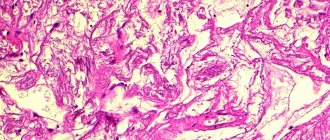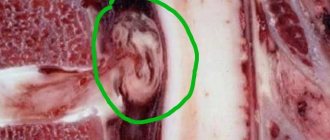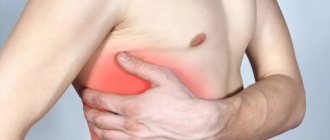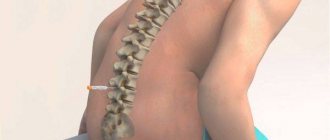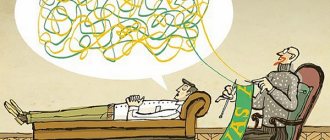Visiting the dentist is a very unpleasant experience. Having headaches after visiting the dental office is a common occurrence. If a doctor removes or prescribes treatment for a diseased tooth, a headache may occur.
The reasons for this may be the following:
- Side effect from medications;
- Severe dental disease;
- Poor oral health;
- A large number of teeth undergoing treatment;
- Poor condition of the body as a whole, the presence of chronic diseases;
- Senile age of the patient;
Most often, pain caused by the cessation of the painkiller goes away on its own. If the pain only gets worse, you need to take an analgesic and consult a specialist for advice.
One of the possible causes of headaches may be the removal of a diseased tooth. Headaches occur especially often when a wisdom tooth is removed (the procedure is not always simple). This type of operation tends to damage bone tissue and gums, which leads to pain.
When correcting a malocclusion, headaches often appear. Pain can be of various types:
- Pain in the ear area;
- The occurrence of pain in the temporal part of the head;
- The occurrence of pain in the occipital part;
If you follow clear treatment instructions, this type of headache goes away in a short time.
Headaches after using anesthesia
Very often, dentists use local anesthesia when treating teeth. After undergoing anesthesia, many patients experience headaches. There are several reasons for this type of pain:
- Presence of intolerance to anesthesia or incorrect choice of medication;
- Location of the diseased tooth in remote places;
Most often, the headache is aching in nature and tends to increase when moving the head.
If headaches began after the extraction of a diseased tooth, it is necessary to find the cause of the pain; it may be a complication of the operation.
What is epidural anesthesia?
When treating patients, various medications are prescribed. These include painkillers of varying degrees of action. Epidural anesthesia, or epidural, is one of the methods of pain relief in order to eliminate any sensitivity in the patient’s body below the waist. Despite the fact that this method has its obvious and undeniable advantages, some patients complain that their back hurts after epidural anesthesia. Accordingly, questions arise about why this happens, and what needs and can be done to make the discomfort go away faster?
Headache due to complications arising after dental intervention
Many patients experience headaches after visiting the dentist. Various factors can contribute to the appearance of pain symptoms:
- The appearance of complications that manifested themselves during dental treatment;
- Intolerance and allergic reactions to the use of drugs;
- Contraindications to tooth extraction;
- The appearance of a specific odor in the place of dental treatment;
- The presence of inflammation of the tissues of the oral cavity;
- The presence of swelling of the oral tissues;
Most often, pain occurs in several places. They begin in the jaw and gradually spread throughout the head. Painful sensations can be either sharp or aching. Complications after going to the dentist may depend on the presence of certain diseases in the patient:
- Very often, pain appears in patients suffering from diabetes. The headache may last for a long time;
- Ear disease, which can progress during dental treatment and cause headaches;
- Delay in contacting a specialist, which results in severe diseases of the teeth and gums, which are accompanied by painful symptoms of the head;
After symptoms of complications occur, you must go to the hospital to prescribe effective treatment. The occurrence of headaches may be due to the progression of certain dental diseases. Such as:
- Periodontitis – aching pain occurs in the temporal parts of the head;
- Alveolitis - severe pain occurs that begins in the jaw area;
Why does my back hurt after epidural anesthesia?
When the medications stop working, the patient begins a recovery period, which is accompanied by various sensations. Sometimes patients experience back pain after an epidural, and how long it hurts and whether any treatment is needed depends on the type and complexity of the surgery and the resulting complications. The occurrence of pain of varying degrees and localization occurs for various reasons. How quickly does a patient recover after receiving an epidural, and what can happen? Timing and response are individual indicators. The causes of pain are also varied.
Infection
Infection develops where the needle was inserted, for example because mistakes were made during disinfection. In some cases, a problem arises if the catheter is left in the patient's body when additional and longer-term pain relief is required.
Intervertebral hernia
If the pain persists for several months or longer, then most likely the patient has an intervertebral hernia. It is not a contraindication to an epidural, but may be an individual feature that should be taken into account when prescribing this method of pain relief; in any case, careful monitoring of the patient’s condition is required.
Medical errors
Back pain after epidural anesthesia may also have a cause such as medical error. This happens if the doctor touches a bunch of veins when installing a catheter and inserting a needle. This is rare, but patients who take medications to improve blood circulation are at risk (this should be noted in the medical history). Also, when carrying out the necessary manipulations (in the absence of sufficient experience on the part of the doctor), the hernia or ligaments, as well as the roots of nerve fibers, may be damaged. Your back may also hurt after epidural anesthesia for a caesarean section. This happens because the mother’s center of gravity moves, and the body needs time to adjust to a new state and cope with the stress experienced.
Headaches after dental implantation
Pain may occur during the recovery period and after dental implantation surgery. Patients usually experience headaches for several days after surgery. The cause of pain is inflammatory processes in the tissues surrounding the implant. For severe pain, the doctor will prescribe a painkiller. If the pain does not go away within five days, you should contact a specialist who will check the implants for surgical complications and prescribe appropriate treatment.
Recommendations for patients after surgery
Inpatient rehabilitation phase During the first hours after surgery,
you will wake up in the intensive care unit.
The anesthesiologist and nurse will monitor your body temperature, pulse, blood pressure and other indicators. During surgery, you may have a catheter inserted into your bladder to monitor the amount of urine you produce. You will also have a chest tube connected to a drainage device. During the first hours/days after surgery, your voice may be slightly different from normal, this is normal. You may remain in the recovery room for one or several days, depending on your condition after surgery. Then you will be transferred to the ward in the surgical department where you were originally located. Frequently Asked Questions Will I experience pain after surgery?
You will experience pain after surgery, this is normal.
Your doctor and nurse will ask you frequently about your pain and give you pain medications as needed. If the pain does not go away, tell your doctor or nurse. Pain relief is essential so that you can clear your throat, breathe deeply, and get out of bed and walk. Remember that taking painkillers can lead to constipation (retention of stool for more than 2-3 days). If constipation occurs, consult your doctor. Upon discharge, your doctor will give you recommendations on taking pain medications. What is pleural drainage and why do I need it?
A chest tube is a flexible tube that drains blood, fluid, and air that accumulates in the chest cavity after surgery. This tube is placed between the ribs in the space between the chest and lungs (see Figure 1).
Picture 1
Chest drainage and pleural banking.
The timing of drainage of the pleural cavity is individual for each patient.
Removal of pleural drainage is carried out by the attending physician if 2 conditions are met: 1) the amount of fluid released does not exceed 200 ml/day 2) there is no air flow through the drainage . Why is it important to walk after surgery?
Walking helps prevent blood clots from forming in the legs.
It also reduces the risk of other complications, such as pneumonia. During your postoperative hospital stay, try to set yourself a goal of walking 1.5-2 km daily. Will I be able to eat after surgery?
You will gradually return to your normal diet when you are ready.
Your healthcare provider will provide you with more information. Can I shower?
You can shower 48 hours after your chest tube is removed.
A warm shower is relaxing and helps reduce muscle pain. Try to avoid contact of the wound with water until it is completely healed. If you do get the bandage wet, contact your doctor to change the bandage. When can visitors come to me?
Visitors can visit you as soon as you are transferred from the intensive care unit to the surgical unit.
You can find out the hours during which visits are allowed from your attending physician at the department. When will I be discharged from the hospital?
The length of your hospital stay depends on many factors, such as the type of surgery you had and how well your recovery was. You will remain in the hospital until your doctor thinks you are ready to go home. Your doctor will tell you what day and time you can expect to be discharged. Your doctor will tell you if you need to stay in the hospital longer than planned. The following are examples of reasons why you may need to stay in the hospital for a longer time:
- prolonged release of air through pleural drainage;
- problems with healing of postoperative wounds;
- breathing problems;
- increase in temperature in the postoperative period (38.0 °C) and higher.
Recovery after returning home Will I feel pain when I return home?
The duration of the presence of pain and discomfort in the area of surgical access is different for each person and depends on a large number of factors.
Thus, pain after open operations will be stronger and longer lasting than after video-assisted thoracoscopic and robotic operations. For some people, pain in the area of the surgical wound or a feeling of tightness or aching muscles may continue for 6 months or longer. This doesn't mean there's anything wrong with you. Follow the guidelines below. Take pain medications as directed by your doctor and as needed. Call your doctor if the prescribed medicine does not relieve your pain. Do not drive or drink alcohol if you are taking prescription pain medication. As your surgical wounds heal, the pain will become less painful and you will need less pain medication. To relieve pain and discomfort, mild painkillers and non-steroidal anti-inflammatory drugs are suitable: ketanov, ibuprofen (Nurofen-express), Nise (imisulide), xefocam (lornaxicam), diclofenac, as well as other drugs in this group. Pain medications should help you as you return to your normal routine. Take enough medication so that you can exercise comfortably. Remember that it is normal for a slight increase in pain as your activity level increases. Keep track of when you take pain medications. Pain medications are most effective 30 to 45 minutes after you take them. It is better to take the medicine at the first appearance of pain and not wait for it to intensify. How should I care for surgical wounds?
After surgery, you will have several incisions. The location of the incisions will depend on the type of surgery performed. They will be performed at the site of the operation and at the site of the chest tube. You may experience some numbness below and above the incision, as well as along the intercostal space where the incision was made. You may also experience tingling and tenderness in the area around your incisions as they heal. By the time you leave the hospital, your surgical wounds will begin to heal.
Change the wound dressing daily and clean the wound with skin antiseptic/diamond green/betadine (check with your healthcare provider for instructions on how to care for surgical wounds).
Upon discharge, your attending physician will give recommendations on when to remove sutures from post-operative wounds. To do this, you will need to contact a surgeon at the clinic at your place of residence.
If, after discharge from the hospital, discharge appears in your postoperative wounds, contact your doctor.
What should I eat at home?
Eating a balanced, high-protein diet will help you recover faster after surgery.
Your diet should include a source of healthy protein at every meal, as well as fruits, vegetables and whole grains. How can I prevent constipation?
After surgery, your bowel movements will change.
There may be problems with bowel movements (stool excretion). If you can, drink 8 glasses (250-300 ml each, 2 liters total) of fluid daily. Drink water, juices, soups, milkshakes and other caffeine-free drinks. Caffeinated drinks, such as coffee and soda, remove fluid from the body. Both prescription and over-the-counter medications are used to treat constipation. If constipation occurs, start with 1 of the following over-the-counter medications: Docusate sodium (Norgalax) 100 mg. Take 3 capsules once daily. This remedy softens the stool and causes only minor side effects. Senna 2 tablets before bed. It is a stimulant laxative that may cause cramping. How can I speed up the recovery process?
Exercise for at least 30 minutes a day. This will make you stronger, improve your well-being and promote recovery. Incorporate a daily walk into your daily schedule. Just walking down the street or walking on a gym will do. If the weather is not very suitable for walking, you can spend time in the shopping center. Climbing stairs is also suitable as a workout. When you return home, continue to do deep breathing exercises and exercises that stimulate coughing. Drink fluids so that the mucus is not thick and can be easily coughed up. Ask your doctor how much fluid you should drink daily. For most people, this will be at least 8-10 glasses (250-300 ml) of water or other liquids (such as juices) per day. During the winter months, run a humidifier in your bedroom. Follow the instructions for cleaning this device. Change the water in it frequently. Avoid contact with people who have a sore throat or cold or flu symptoms. All this can cause an infection to develop.
Do not drink alcohol, especially if you are taking pain medication.
Do not smoke.
Smoking cigarettes will always be harmful to your health. It is especially dangerous during the recovery period after surgery. Smoking causes blood vessels to narrow. This reduces the amount of oxygen supplied to wounds during their healing process, which significantly slows down the regeneration process. Remember, if you are not able to quit smoking on your own, you can contact the “Smoking Quit Assistance Center” located on the territory of the St. Petersburg NIIF by contacting them on the hotline (+7). Can I return to normal activities?
It is very important that you return to your normal activities after surgery. Distribute their implementation throughout the day. Walking and climbing stairs are excellent exercise. Gradually increase the distance you walk. Climb the stairs slowly, resting and stopping as needed. Do light housework. To the best of your ability, try to dust, wash dishes, cook simple meals, and do other tasks. When going about your business, use the arm and shoulder on which the operation was performed. For example, wash yourself, comb your hair, take things out of the closet shelf with this hand. This will help restore full function of the arm and shoulder.
You can return to your normal sex life as soon as the post-operative wounds have healed, without experiencing any pain or weakness.
Your body will tell you when you are overtired.
As you increase the intensity of your exercise, monitor your body’s reaction. You may notice that you have more energy in the morning or afternoon. Schedule your activities for the time of day when you feel more energetic. Is it normal to feel tired after surgery?
Typically, a person has less strength than usual after surgery.
Recovery time is different for everyone. Increase your activity every day to the best of your ability. Always maintain a balance between periods of activity and periods of rest. Rest is an important factor in your recovery. It may take some time for you to return to your normal sleep pattern. Try not to sleep during the day. Showering before bed and taking prescribed pain medications will also help. When will I be able to drive?
You will be able to drive again after: the range of motion of the arm and shoulder on which the operation was performed is restored to full extent;
you will not take narcotic pain medications (which make you drowsy) for 24 hours. Can I travel by plane?
Do not fly by plane until your doctor allows it; in the first months after surgery, try to use other means of transport or completely avoid long-distance travel.
When can I return to work?
The time frame for returning to work depends on what type of job you have, what type of surgery you had, and how quickly your body recovers.
If you need a certificate to return to work, contact your doctor. When can I lift weights?
Check with your doctor before lifting weights.
It is generally not recommended to lift anything heavier than a normal grocery bag (5kg) for at least 1 month after surgery. Ask your doctor how long you should avoid lifting heavy objects. This depends on the type of surgery you had. Which doctors should I see after surgery?
Upon discharge from the hospital, your attending physician will give you a discharge summary with further recommendations.
If it is necessary to consult any specialists, this will be indicated in the epicrisis. What questions should you contact your doctor about?
Sometimes in the postoperative period the patient may be bothered by the following conditions:
- shortness of breath appeared or worsened;
- swelling of the chest, neck, or face;
- the voice changed dramatically;
- temperature increased (38.0 °C) or higher;
- the pain has sharply increased and does not go away after taking painkillers;
- redness or swelling appears around the postoperative wound;
- there is discharge from the postoperative wound that has an unpleasant odor, thick consistency or yellow color (similar to pus);
- no bowel movements for 3 days or longer;
- new symptoms or physical changes appear;
And if you have any questions or concerns regarding your health, please contact your healthcare provider.
Full version
© Website of a medical organization
The information posted on the site is not a public offer
- Cabinet
- Personal data
- Coupons
- My services
- Test results
- My requests
- Exit
Treatment methods for headaches after dental surgery
If you have a headache for a long time, your dentist will prescribe treatment using the following medications:
- Anti-inflammatory drugs - help relieve inflammation;
- Analgesics – eliminate pain;
- Antispasmodics – relieve spasms that cause pain;
If the cause of pain is inflammatory processes in the oral cavity, then the presence of toxins, which are eliminated by the use of antibiotics, should initially be eliminated, and only then the prescribed medications should be used.
Taking such medications must be done under the supervision of a physician. The use of such drugs is contraindicated for patients suffering from stomach diseases.
Cold compress
Cold causes blood vessels to constrict and bleeding in the injured area slows down. If you have no contraindications, you can use a cold compress to reduce swelling and pain in the surgical area. As a cold compress, you can use special gel packs sold in pharmacies; any package from the freezer is also suitable. Wrap the cold bag in a towel and then place it on the damaged area and apply a compress if necessary. The towel will protect the fabrics from possible local exposure to cold. Keep the cold compress in place for 20-30 minutes at a time, then pause for 10-15 minutes and repeat the procedure if necessary.
Relieving pain with folk remedies
If you experience headaches after a recent visit to the dentist, you must first identify the cause of the disease. It is impossible to do this on your own without visiting a doctor. You can use some traditional medicines, but you should consult your doctor before using them.
- Drinking mint tea is good for eliminating cramps and reducing headaches;
- Freshly prepared viburnum juice - drink one hundred grams for headaches twice a day for five days;
- The use of hot foot baths is a proven folk method for relieving headaches;
You should know that the occurrence of headaches after dental treatment may be one of the first prerequisites for the occurrence of more dangerous diseases.
Painful sensations mean that inflammatory processes are occurring in the body, so you need to consult a specialist; you should not self-medicate. Moscow metro station Zvezdnaya, Danube Avenue, 23
Paracetamol
Paracetamol is often the first choice for mild to moderate pain. Paracetamol differs from other painkillers (for example, ibuprofen and diclofenac) primarily in that it does not irritate the mucous membrane of the digestive tract. Side effects are rare when taking paracetamol. The most severe possible side effect is liver damage, which is rare and most often occurs due to an overdose of the drug. Paracetamol should be used cautiously in cases of liver or kidney failure, chronic malnutrition or alcoholism. Paracetamol should be prescribed to a child according to his age and weight. If additional medications are used (for example, so-called flu teas), which include paracetamol in combination with an anesthetic, you need to ensure that the amount of paracetamol taken per day does not exceed the permitted daily dose (for adults, 4 grams per day).
Music therapy
Listening to music reduces anxiety, slightly reduces the severity of post-operative pain, and with music the stress reaction associated with pain occurs less frequently. Therefore, the need to take opioids is reduced. If you enjoy listening to music and it relaxes and calms you, then we recommend that you take your favorite music with you to the hospital. You just need to remember that other patients may not like your favorite music, so we recommend that you use headphones when listening to music.

